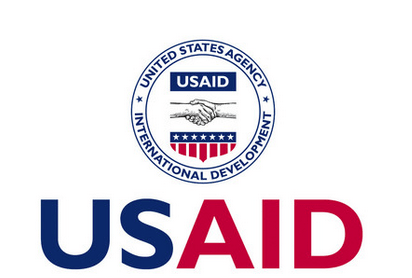Ghana risks losing donor support from US to fight child labour – USAID
 Ghana’s efforts in the fight against Child Labour and Trafficking (CLaT) has not met the minimum standards for the elimination of trafficking in persons and hence risk losing donor support from the United States Government.
Ghana’s efforts in the fight against Child Labour and Trafficking (CLaT) has not met the minimum standards for the elimination of trafficking in persons and hence risk losing donor support from the United States Government.
Mr Maurice Knight, the Chief of Party (CoP) of the United States Agency International Development (USAID) – Sustainable Fisheries Management Project (SFMP) has stated.
An estimated 2.7 million child labourers are in Ghana with the fishing, cocoa and artisanal mining sectors being the largest employers of child labour in the country.
Consequently, Ghana has for two consecutive years been listed on the Tier Two watch list of the United States’ (US) Department Trafficking in Person (TIP) in 2015 and 2016 respectively.
Mr Knight said it was likely Ghana would be downgraded to Tier Three on this year’s TIP list, which could have dire implications for the country unless pragmatics steps were taken to avert the situation.
This was revealed at a durbar organised by the SFMP and its implementing partners at Apam on Tuesday to mark this year’s World Day Against Child Labour (WDACL).
It was attended by traditional authorities, security services, students, government representatives, opinion leaders, politicians, civil society organisations and the general public.
The WDACL was launched by the International Labour Organisation on June 12, 2002 as part of the global advocacy to highlight the plight of children in hard labour.
It was celebrated on the theme; “Eliminating Child Labour and Trafficking in our vulnerable communities: Our duty.”
According to Mr Knight, many children in Ghana were still being robbed of the opportunity to attend school as they were forced to work long hours and often under dangerous conditions with girls being exploited in domestic servitude and often abused.
He noted that enforcement against CLaT was weak in Ghana while public awareness campaigns and interventions by Government and non-governmental organisations to provide protection for children were insufficient and needed to be expanded.
Mr Knight urged the Government to be extra committed and redouble its efforts to fight and eliminate CLaT by creating a system that empowered institutions to prosecute perpetrators.
He also implored Ghanaians to be active participants in the fight against CLaT and support the Government in all directions to meet its enforcement, protection, rehabilitation and prevention needs.
He said SFMP and its implementing partners were working to actively include vulnerable households along the coast in programmes that directly raised their economic status because poverty and economic hardships were major drivers of the menace.
Mr Bismark Baisie Nkum, Gomoa West District Chief Executive (DCE) expressed worry over the prevalence of CLaT in fishing communities within the Region resulting in child marriages and prostitution.
The phenomenon, he noted had also created many health related problems among such children and called on stakeholders to intensify their efforts to reduce it.
He advised parents in fishing communities to desist from selling their children into slavery but rather strive to send them to school, adding that “you stand a chance of enjoying the fruits of your labour in the long run if you send your children to school”.
Mr Nkum said the Assembly would continue to partner stakeholders to curb the menace and encouraged the public to report acts of CLaT to the Police for the necessary action to be taken against the perpetrators.
Source: GNA
